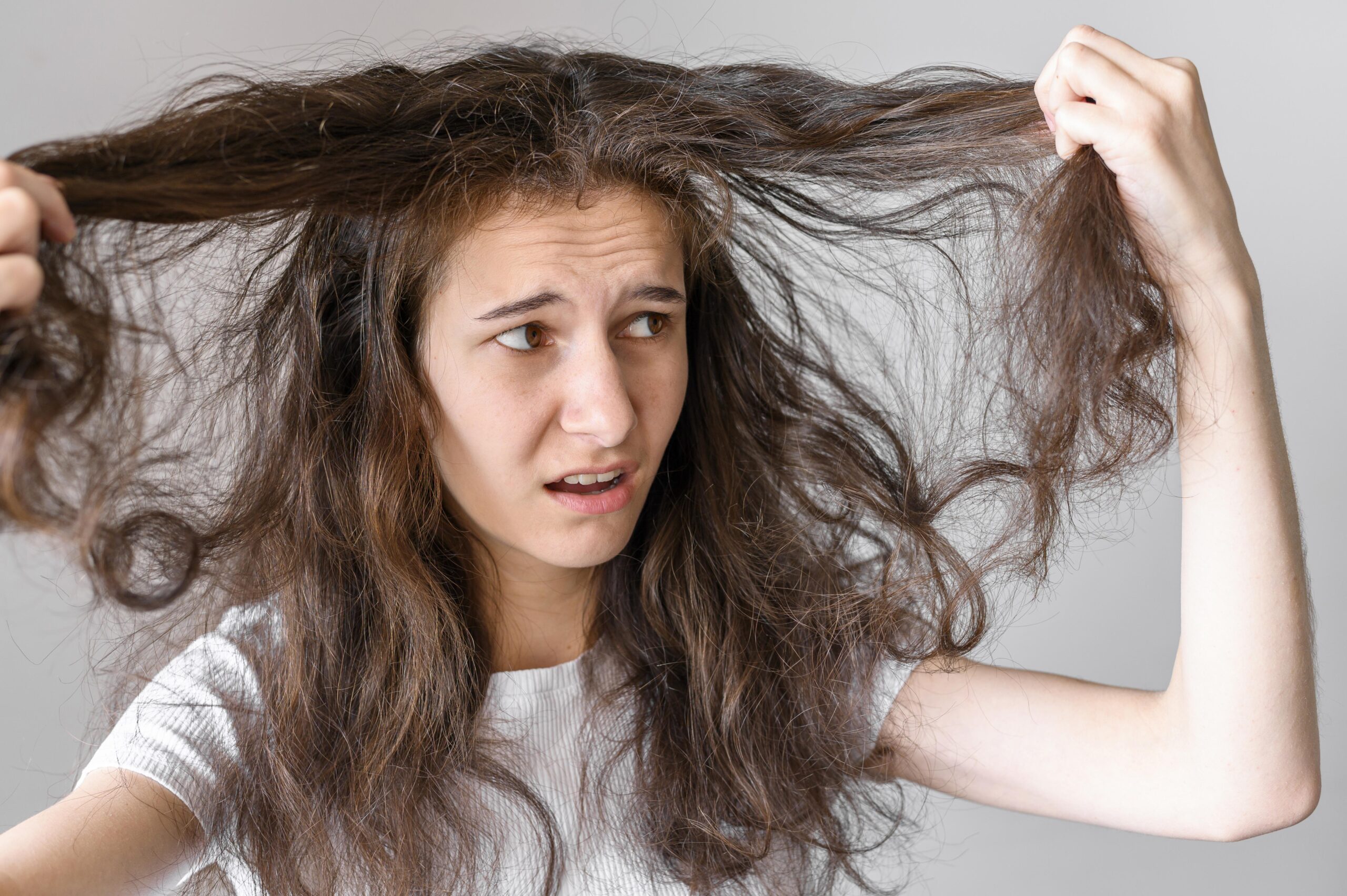
Stress is an unavoidable part of life, and its impact on our well-being extends beyond our mental and emotional state. Surprisingly, one area where stress can manifest its effects is our scalp health. If you’ve ever noticed an increase in flakiness, itchiness, or hair loss during stressful periods, you’re not alone. In this blog post, we’ll delve into the intricate relationship between stress and your scalp health and explore effective strategies for managing flakiness caused by stress.
Understanding the Stress-Scalp Connection:
Stress triggers various physiological responses in the body, one of which is the release of stress hormones like cortisol. These hormones can have a profound impact on our skin, including the scalp. Here’s how stress affects your scalp health:
1. Excess Oil Production:
Stress can stimulate the sebaceous glands in your scalp, leading to an overproduction of oil. This excess oil can clog hair follicles and create an ideal environment for dandruff-causing yeast to thrive.
2. Weakened Immune Response:
Chronic stress can weaken the body’s immune system, making it less capable of fighting off scalp infections, including fungal infections that contribute to flakiness.
3. Hair Loss:
Stress can trigger a type of hair loss known as telogen effluvium, causing hair follicles to prematurely enter the resting phase and fall out. This can result in thinning hair and exacerbate scalp issues.
4. Scratching and Itching:
Stress can lead to increased scratching or itching of the scalp, which can damage the skin’s protective barrier and exacerbate flakiness and irritation.
5. Blood Flow Changes:
Stress can constrict blood vessels, reducing blood flow to the scalp. This can compromise the delivery of essential nutrients to the hair follicles and skin, potentially worsening scalp health.
Managing Stress-Related Scalp Flakiness:
Now that we understand how stress impacts scalp health, let’s explore ways to manage and alleviate these effects:
1. Stress Reduction Techniques:
Incorporate stress-reduction practices into your daily routine. Yoga, meditation, deep breathing exercises, and mindfulness can help lower cortisol levels and reduce stress-related scalp issues.
2. Maintain a Balanced Diet:
A well-balanced diet rich in vitamins, minerals, and antioxidants can support overall scalp and hair health. Focus on foods that promote skin health, such as fruits, vegetables, and omega-3 fatty acids.
3. Adequate Sleep:
Ensure you get enough quality sleep. Sleep is essential for overall health, including skin and scalp regeneration.
4. Regular Exercise:
Physical activity can reduce stress and improve blood circulation, benefiting your scalp’s health. Aim for regular, moderate exercise.
5. Hydration:
Stay hydrated to maintain skin elasticity and prevent dryness, which can exacerbate flakiness.
6. Use Gentle Hair Care Products:
Choose mild, sulfate-free shampoos and conditioners to avoid further irritation to your sensitive scalp.
7. Scalp Massages:
Gentle scalp massages can stimulate blood flow and relax your scalp, reducing tension and itchiness.
8. Seek Professional Help:
If stress-related scalp issues persist or worsen, consult a dermatologist or healthcare provider. They can recommend treatments or therapies tailored to your specific needs.
Conclusion:
Stress is an inevitable part of life, but it doesn’t have to take a toll on your scalp health. By understanding the connection between stress and flakiness and implementing stress management techniques and a scalp-friendly care routine, you can maintain a healthy scalp even during challenging times. Prioritize self-care and stress reduction to enjoy not only a calmer mind but also a flake-free, vibrant scalp.

